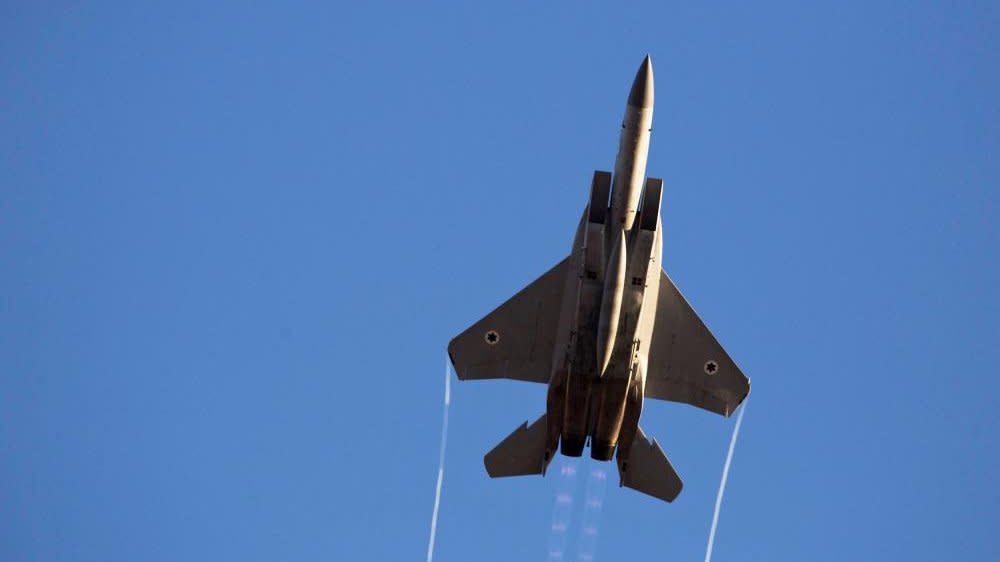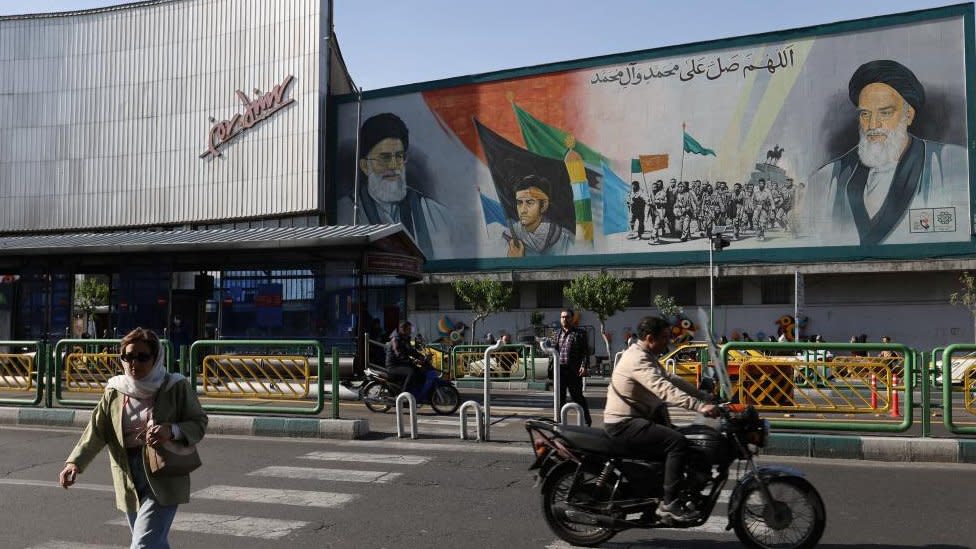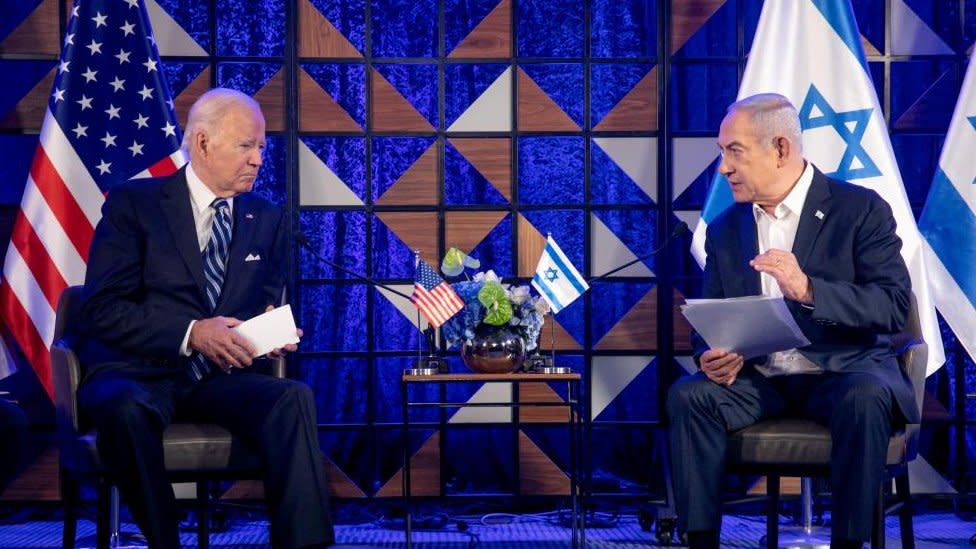Israel's strike on Iran: Crisis shows how badly Iran and Israel understand each other

Israel's attack on Iran was not the fierce response that US President Joe Biden and other western leaders had feared.
They have been urging Israel to draw a line under the dangerous series of events that started with Israel's assassination of a senior Iranian general in Damascus on 1 April.
More than six months after the Hamas attacks on Israel, war continues in Gaza and has spread to the area either side of the Lebanon-Israel border and to the Gulf.
The fear is that the Middle East is on the brink of an all out war, with global as well as regional dangers.
The Iranians are playing down the significance of what's happened in Isfahan.
Initial reports said there had been no attack. Later, an analyst on state TV said air defences had knocked out drones that had been launched by "infiltrators".
Official media outlets have posted jokey photos of miniature drones.
Israel was responding to the attack last Saturday from Iran. Despite years of enmity and threats it was the first time since the establishment of the Islamic Republic in 1979 that Iran had launched a direct strike from its territory onto Israel's.
During that attack Iran launched more than 300 missiles and drones. Almost all of them were destroyed by Israel's air defences, augmented by forces from the US, UK and Jordan.
The Iranians had made their intentions clear, giving Israel and its allies time to prepare themselves, and quickly issued a statement at the UN in New York that their retaliation was over.
Mr Biden urged Israel to "take the win" but Israel insisted it would hit back.
From the outset, this crisis has shown how badly Iran and Israel understand each other. Both miscalculated, deepening the crisis.

Israel seemed to believe that Iran would not respond with anything stronger than outrage when it killed General Mohammed Reza Zahedi in Damascus.
Its air strike flattened the consulate at the Iranian diplomatic compound in Damascus, killing six others, including another general.
Iran announced it regarded the attack as a strike on its own territory. Israel claimed the premises were not protected by diplomatic conventions as the Iranian Islamic Revolutionary Guard Corps had turned them into a military post.
Iran, nor indeed western allies of Israel, did not accept a unilateral reclassification of the building's status - and the government in Tehran hoped Israel would agree to a draw a line after its response.
That was another serious miscalculation.
If the attack on Isfahan is not followed up with more attacks, then the immediate tensions will ease.
What happened overnight could be Israeli Prime Minister Benjamin Netanyahu's attempt to respond, without alienating Mr Biden any more than he has already.
If this is it, another question is whether it will be enough for the former generals in Israel's war cabinet who are believed to want a strong response to, as they see it, restore Israel's capacity to deter its enemies.

Mr Netanyahu's ultranationalist coalition allies have also demanded a fierce retaliation from Israel.
The National Security Minister Itamar Ben Gvir said that the Israelis needed to "go berserk" when Iran attacked. In a social media post, he described the Isfahan strike as "feeble".
The best option for the region, in the opinion of western governments, is for both Iran and Israel to draw a line under the saga.
However, even if this is the end of this stage of this crisis, new precedents have been set.
Iran has hit Israel in a direct attack, and Israel has responded with its own direct attack.
That is a change in what are often referred to in the region as the "rules of the game" governing the long conflict between Iran and Israel.
The long clandestine war between the two countries has come out of the shadows.
In the process Iran and Israel have shown that for all the obsessive attention they devote to each other, they are not good at reading each other's intentions.
In a highly combustible part of the world, that is not encouraging.
